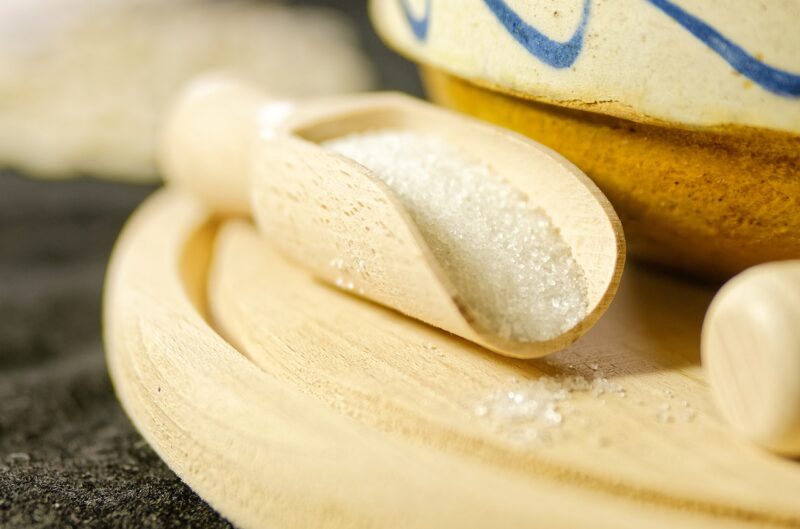
In today’s health-conscious world, many individuals are seeking alternatives to traditional cane sugar. With an increase in awareness around sugar’s health implications, including obesity and diabetes, it’s crucial to explore suitable substitutes that can provide the sweetness we crave while offering added nutritional benefits. Among these alternatives, agave nectar, maple syrup, and several others stand out. This article dives deep into these sweeteners, examining their benefits, usage, and how they compare to conventional cane sugar.
1. Understanding Cane Sugar
Cane sugar, derived from the sugarcane plant or sugar beets, is the most common form of sugar consumed globally. It is commonly used in cooking and baking and is known for its high glycemic index, which means it can cause spikes in blood sugar levels. Consuming excessive amounts of cane sugar can lead to numerous health issues such as weight gain, insulin resistance, and an increased risk of various diseases.
Nutritional Profile
Cane sugar offers no nutritional benefits; it is essentially empty calories. This fact has led many to seek healthier alternatives that provide sweetness along with other nutrients.
2. Agave Nectar: The Sweetness of the Desert
Agave nectar is derived from the sap of the agave plant, primarily found in Mexico. It has gained popularity as a natural sweetener due to its unique flavor profile and lower glycemic index compared to cane sugar. Agave nectar is sweeter than sugar, meaning you need less of it to achieve the same level of sweetness.
Health Benefits
– Lower Glycemic Index: Agave has a lower glycemic index (around 15 to 30) than cane sugar, which means it has less impact on blood sugar levels.
– Rich in Fructose: While it’s crucial to consume fructose in moderation, agave contains around 90% fructose, which can be beneficial for energy levels without causing rapid blood sugar spikes.
– Vitamins and Minerals: Agave contains small amounts of vitamins and minerals, including calcium and magnesium.
Usage in Cooking
Agave nectar can be used in various recipes, including smoothies, baked goods, salad dressings, and sauces. It’s important to note that because it is sweeter than sugar, adjustments in quantities may be necessary.
3. Maple Syrup: Nature’s Golden Elixir
Maple syrup, made from the sap of sugar maple trees, is a beloved natural sweetener. Its distinct flavor and rich color make it a favorite for pancakes and desserts alike. But maple syrup isn’t just sweet; it also offers several health benefits.
Health Benefits
– Nutrient-Dense: Maple syrup contains antioxidants, vitamins, and minerals such as manganese, zinc, calcium, and potassium, contributing to overall health.
– Anti-Inflammatory Properties: Some studies suggest that antioxidants in maple syrup can lower inflammation and cellular damage.
– Lower Glycemic Index: Maple syrup has a moderate glycemic index (around 54), making it a better alternative to cane sugar, though still in moderation.
Usage in Cooking
Maple syrup is versatile; it can be drizzled on breakfast foods, added to baked goods, or even used as a sweetener in savory dishes. The unique flavor can enhance the profile of many meals.
4. Honey: Nature’s Sweetener
Honey is a well-known natural sweetener that has been used for centuries. It is produced by bees from the nectar of flowers, and its flavor can vary widely depending on the source of the nectar.
Health Benefits
– Rich in Antioxidants: Many types of honey are loaded with antioxidants, which can help fight inflammation and boost overall health.
– Antimicrobial Properties: Honey has natural antibacterial properties, making it beneficial for wounds and sore throats.
– Natural Energy Source: Honey provides a quick source of energy due to its natural sugars, making it a great pre-or post-workout snack.
Usage in Cooking
Honey can be used in tea, baking, marinades, and dressings. Its sweetness and flavor profile can nuance various dishes.
5. Coconut Sugar: A Healthy Alternative
Coconut sugar is derived from the sap of the coconut palm tree and has been gaining traction as a healthier option. It retains some nutrients due to its minimally processed nature.
Health Benefits
– Nutrients and Antioxidants: Coconut sugar contains small amounts of vitamins and minerals, including iron, zinc, calcium, and potassium, plus antioxidants.
– Lower Glycemic Index: With a glycemic index of around 35, coconut sugar is a better option for blood sugar management.
Usage in Cooking
Coconut sugar can replace cane sugar in most recipes on a one-to-one basis, making transition easy.
6. Stevia: A Zero-Calorie Sweetener
Stevia is a naturally derived sweetener extracted from the leaves of the Stevia plant. Its popularity stems from its zero-calorie count and intense sweetness.
Health Benefits
– Zero Calories: Stevia is perfect for those seeking to cut calories as it does not contribute to one’s daily caloric intake.
– Blood Sugar Management: Studies suggest that stevia may help regulate blood sugar levels and lower blood pressure.
Usage in Cooking
Stevia can be used in beverages, baking, or as a sweetener for various dishes. However, due to its concentrated sweetness, using much less than traditional sugars is essential.
7. Comparing the Alternatives
When selecting a sugar alternative, consider the following:
– Nutritional Value: Alternative sweeteners provide different health benefits. In general, natural sweeteners tend to offer more nutrients than cane sugar.
– Glycemic Index: Understanding the glycemic index can help manage blood sugar levels; lower is generally better.
– Taste Preferences: The flavor of alternative sweeteners can vary significantly. Choose one that enhances rather than detracts from your meals.
Conclusion
Cane sugar may be a conventional sweetener, but numerous alternatives offer health benefits and flavor variety. Sweeteners like agave nectar, maple syrup, honey, coconut sugar, and stevia each possess unique qualities worth considering in your diet. By exploring these alternatives, you can satisfy your sweet tooth healthily, ensuring that each treat contributes positively to your overall well-being.
Switching to one of these natural alternatives could pave the way for a healthier lifestyle, with more balanced nutrition and greater control over your health. Experiment with these sweeteners in your cooking and baking today, and discover the extraordinary flavors they can add to your meals and beverages.








